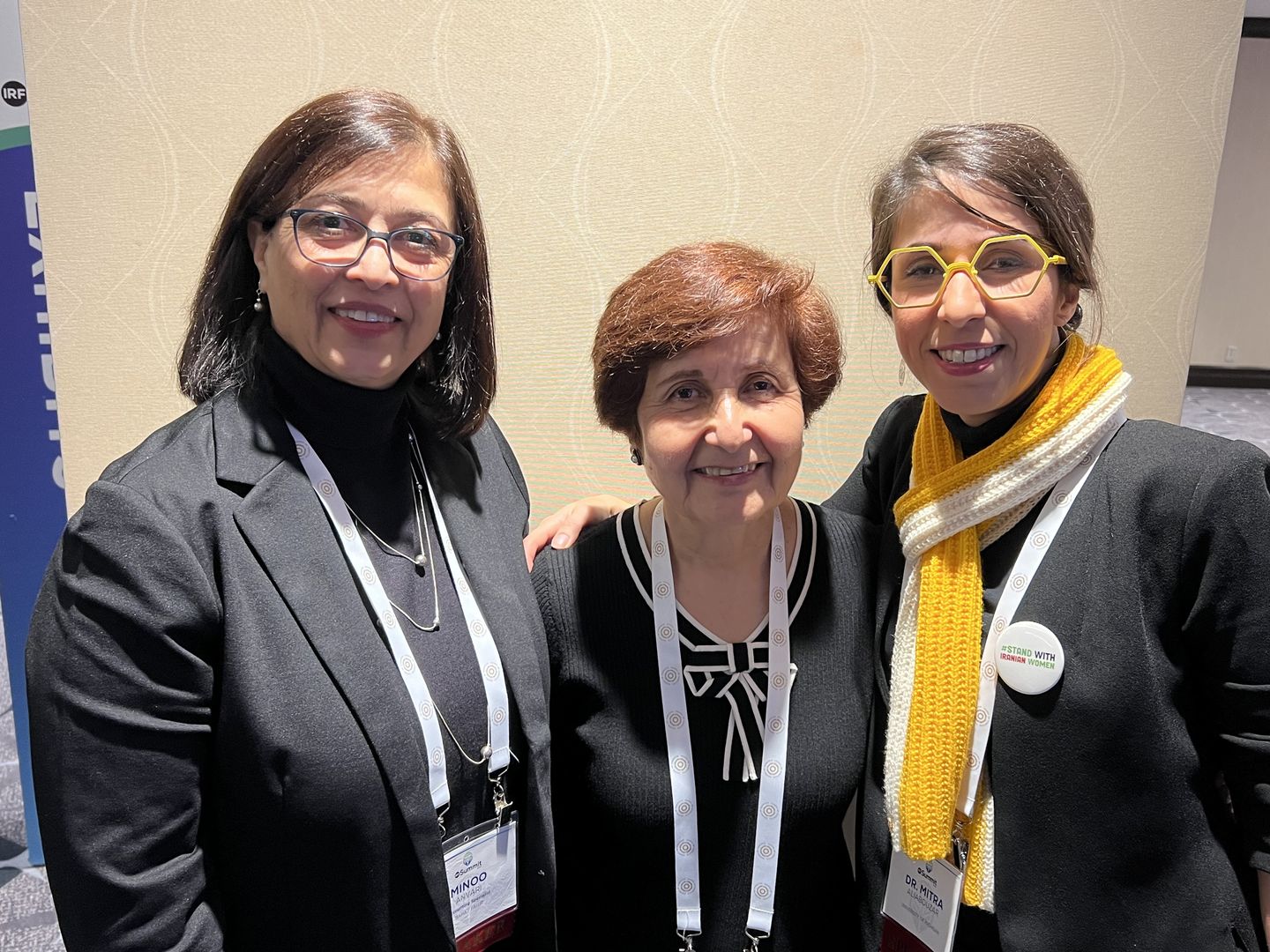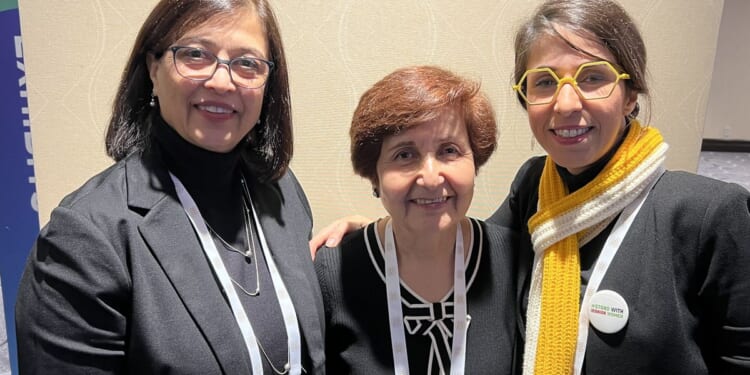
Tens of millions of women worldwide are persecuted for their religious beliefs or nonbeliefs, advocates at the International Religious Freedom Summit 2024 say, but their stories often go untold because of their gender.
“The research points to the fact that because they’re women, sometimes they’re sold into sex slavery; sometimes there are forced conversions; sometimes women are more vulnerable to blasphemy charges because they’re weaker,” said Lou Ann Sabatier, a cofounder of the FoRB (Freedom of Religion or Belief) Women’s Alliance, which helps women advocate in their own countries. “It’s a cultural, ethnic issue.”
Now in its fourth year, the summit draws hundreds of religious liberty, advocates, scholars, and more than a few victims of religious persecution to Washington for days of advocacy and education. The two-day event at the Washington Hilton ended Wednesday.
Exact numbers on the scale of the global problem are difficult to come by in part because of underreporting by the victims themselves, said Ms. Sabatier, a veteran media consultant who’s worked on religious liberty issues.
“As much as you have government and nonstate actors oppressing women, you have communities and families doing it, and it’s called the hidden [oppression], so it’s not reported,” she said. “If they self-report, they’re persecuted more.”
But the stories persist: Christian girls kidnapped by Islamist terrorists such as Boko Haram in Nigeria; accusations of blasphemy against the Prophet Muhammad by Christian women in Pakistan resulting in beatings, jailings or killings; violence against and the kidnapping of Jewish women in southern Israel during the Hamas attack on Oct. 7; and sterilizations and forced abortions of Uyghur Muslim women in China, targeted for their faith.
“It’s a troubling and complicated world for women when it comes to freedom or religion or belief,” said Frederick A. Davie of the U.S. Commission on International Religious Freedom.
“But I think the evidence is pretty clear, where women and girls have their human rights acknowledged and support it, not only do they flourish, but the societies in which they live flourish.”
He said the commission, a nonpartisan group that surveys religious freedom issues worldwide and advises the president, the State Department and Congress, has taken “a real strong stand” on the plight of women in Afghanistan under the Taliban, which regained power in 2021.
“USCIRF believes that anywhere around the world that rigid religion is being used to oppress and restrict the human rights of women, then it needs to be calling the question at best and in certain situations, such as Afghanistan, outright condemned and challenged,” he said.
One group at the IRF Summit that is highly familiar with the oppression of women for religious reasons is comprised of three Iranian women now living in the U.S.
Mitra Aliabouzar, a research assistant professor of radiology at the University of Michigan, learned the value of religious freedom in Tehran’s notorious Evin Prison, even though she was — and is — a nonbeliever.
Imprisoned for protesting the Islamic Republic of Iran’s theocratic regime, she saw women jailed solely for being adherents of the Baha’i faith, which the ruling mullahs consider heretical.
“I am not religious, nor am I a Baha’i,” she said, but she said she felt a responsibility to advocate on behalf of the women she met behind bars in Iran.
Ruhi Jahanpour, a Baha’i, was imprisoned in the Iranian city of Shiraz in October 1982. Seven months later, 10 Baha’i women prisoners were executed after refusing to recant their faith. Now the owner/director of a Montessori school near Huntsville, Alabama, she wants the world to know that Iran’s rulers persecute the faith because of the religion’s teachings on the unity of humankind and the religion’s practice of men and women worshipping together.
Raising awareness of the persecution of Christian women in countries such as Pakistan can be a challenge, according to Jeff King, president of International Christian Concern.
“Persecution is hard enough to get people clued in on,” Mr. King told The Washington Times. “And then you go down from general persecution down to the specifics of the religion and the gender tied together, and it can be tough sledding.”
He said his D.C.-based organization seeks to help women who are dealing with persecution by offering practical aid.
“We’ll focus a lot on job development or job skills,” he said. “It’s got to be persecution at the core, but that’s where we’ll empower women by giving them these job skills, or after their husbands have been murdered for being a Christian, we get them back on their feet so the family can stick together and carry on.”












